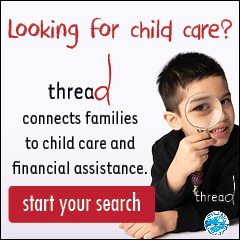
What parents of children with autism want you to know
By Rachael Moshman
Autism isn’t one size fits all.
Nicole Ramage says, “It’s important to know that it is a spectrum disorder. Just because one child is nonverbal and low functioning doesn’t mean they all are.” She adds, “And every autistic child isn’t ‘Rainman’ either.”
Lindsay Crapo explains a common misconception is that people with ASD have a hard time with feelings and emotions. In her son’s case, it isn’t that he lacks the ability to feel, but that he constantly feels every emotion at once. “The difficulty lies in separating them.”
Daily life is challenging.
Kelley Bravener says routine is essential. Planning for a simple trip to the grocery store often takes longer than the actual errand. Crowds, unfamiliar people, transition, changes and new places are all triggers. Another part of day-to-day life is a near-constant battle with insurance companies and school districts to get the services a child is entitled to. Keeping their child safe from wandering off or hurting themselves is a never-ending worry. All of this is exhausting.
Their parenting choices are constantly judged.
Because their child’s special needs are invisible, many parents of autistic children feel judged when their child has a public meltdown or exhibits behavior others find unusual. Amanda Larson has had strangers comment on her allowing her daughter to play with electronic devices during dinner at a restaurant; however, it is a survival tactic so the rest of the family is able to enjoy the meal. The constant judgment sometimes gets tiring to even those parents with the thickest skin.
They are desperate for a place to fit in.
Kathy Peterson is relieved to have finally found a place her family feels safe, loved and appreciated. They searched for a long time for a community where her autistic teenage son could be himself and feel included without being expected to act like all the other kids. They’ve never found that environment with a school setting, but they did find it at church.
Jennie Skrobisz advises to listen when a child with ASD speaks “because it will likely be profound.”
They can love their child, but hate autism...or they may see it as a gift.
Michael Shelah says, “I love my son with all my heart and if you told me we could remove his autism and let him have a typical life but it would require violently ripping off my arm, I’d do it. I love my son and hate autism.”
Rachel Vogelsong has a different point of view: “I don’t need my child to be fixed or cured. It’s my job as his mom to help him find ways to make the world make sense for him. His unique perspective is a blessing.”
So how can you help these parents? Start by bringing them a cup of coffee and a muffin, then asking what you can do.
–Rachael Moshman has a master’s degree in early childhood education with a focus on special needs and infant/toddler development
Frequently Asked Questions about Autism
One in 68 US children has an autism spectrum disorder. That’s a whole lot of parents feeling misunderstood and alone. Here’s what they want you to know.
I am concerned that my child may not be developing normally. Who should I contact?
Age 0 to 3: Contact Alaska’s Early Intervention/Infant Learning Program (dhss.alaska.gov/ocs/Pages/infantlearning/default.aspx).
Age 3 and older: Contact your local school district and/or Head Start program (akheadstart.org).
I am worried that I may not be able to afford the testing needed to find out if my child has autism, and the treatment needed following a diagnosis. What kind of financial resources are available to help?
Contact the Alaska Division of Public Assistance to find out if you qualify for assistance through Denali KidCare or TEFRA (Tax Equity and Fiscal Responsibility Act). For more information, call 907-269-6529 or 888-318-8890.
What support and resources are available in my area of Alaska?
Information about these resources can be found at the Alaska Resources (dhss.alaska.gov/dph/wcfh/Pages/autism/Resources.aspx).
What causes autism?
Despite ongoing research, we do not know all of the causes of autism spectrum disorders. However, we have learned that there are likely many causes of different types of autism disorders. Environmental, biologic and genetic factors may make one child more likely to develop an autism disorder than another child.
To find out more about current and credible autism research, visit the CDC web site (cdc.gov/ncbddd/autism/research.html).
Do vaccines cause autism?
Many studies have examined whether there is a relationship between vaccines and autism spectrum disorders. At this time, these studies continue to show that vaccines are not associated with autism disorders.
The State of Alaska and CDC, however, know that some parents and others still have concerns about vaccinations. To address these concerns, CDC is part of the Interagency Autism Coordinating Committee (IACC), which is working with the National Vaccine Advisory Committee (NVAC) on this issue. The job of the NVAC is to advise and make recommendations regarding the National Vaccine Program. Communication between the IACC and NVAC will allow each group to share skills and knowledge, improve coordination, and promote better use of research resources on vaccine topics.
For more information about vaccines and autism spectrum disorders, visit the CDC web site (cdc.gov/ncbddd/autism/research.html).










